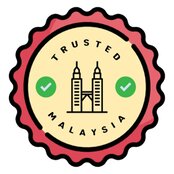Best Defamation Lawyers in Puchong Batu Dua Belas
Share your needs with us, get contacted by law firms.
Free. Takes 2 min.
List of the best lawyers in Puchong Batu Dua Belas, Malaysia
About Defamation Law in Puchong Batu Dua Belas, Malaysia
Defamation in Puchong Batu Dua Belas, Malaysia, is governed by the Defamation Act 1957, alongside other relevant legal doctrines under Malaysian law. Defamation refers to the act of damaging the reputation of an individual, group, or organization through false or malicious statements. In Malaysia, defamation can be categorized into two types: libel, which is written defamation, and slander, which is spoken defamation. Given the rapid growth in digital communications and social media, defamation cases have seen an increase, as statements made online can quickly spread and cause reputational harm.
Why You May Need a Lawyer
There are several situations where seeking legal assistance in defamation might be necessary. If you have been accused of making defamatory statements, a lawyer can help defend you by proving the statements were true, constituted fair comment, or were made by privileged communication. Conversely, if you believe you have been defamed by false statements, a lawyer can assist in proving the elements of defamation and seeking compensation for damages. Legal advice is also crucial when dealing with complex issues such as identifying anonymous online defamers or navigating the intricacies of public figure defamation cases.
Local Laws Overview
The Defamation Act 1957 is the principal legislation regarding defamation in Malaysia. Significant elements that must be established include the identification of the statement, that the statement is defamatory, and publication to a third party. Moreover, cases arising in Puchong Batu Dua Belas must align with federal jurisdiction, as defamation is governed at the national level. It is also important to note the evolution of the judiciary's interpretation of online defamation cases, which are increasingly common in modern legal practice.
Frequently Asked Questions
What counts as defamation in Malaysia?
Defamation involves making false statements that harm someone's reputation. These statements must be made to at least one other person apart from the individual defamed.
Is truth a defense in defamation cases?
Yes, if the statements can be proven to be true, it serves as a complete defense to a defamation claim under Malaysian law.
How does online defamation differ from traditional defamation?
While the basic principles remain the same, online defamation often involves unique challenges, such as anonymity and the vast reach of statements, complicating issues of jurisdiction and enforcement.
What remedies are available for defamation victims?
Victims of defamation can seek apologies, retractions, and compensation for damages, including for emotional distress and lost earnings.
Are verbal comments considered defamation?
Yes, verbal comments can constitute slander if they falsely harm a person's reputation and are communicated to a third party.
Can public figures file for defamation?
Yes, but public figures may need to prove actual malice, meaning the statements were made with knowledge of their falsity or reckless disregard for the truth.
How long do I have to file a defamation lawsuit?
The statute of limitations in Malaysia for defamation is generally six years from the date of publication.
What is 'qualified privilege' in defamation law?
Qualified privilege protects statements made in certain contexts where the communicator has a moral, legal, or social duty to make them, and the recipient has a corresponding interest in receiving them.
Can I be sued for defaming someone on social media?
Yes, statements made on social media can constitute defamation if they meet all legal elements required, just like any other form of communication.
What is the role of the court in defamation cases?
The court evaluates the evidence, determines if defamation has occurred, and awards remedies if necessary. It also interprets legal defenses and jurisdictional issues.
Additional Resources
For further information on defamation, you may consider contacting the Malaysian Bar Council or seeking advice from law firms specializing in media and communication law. Governmental bodies like the Department of Public Complaints and consumer organizations can also provide guidance.
Next Steps
If you believe you have a defamation case, consult a legal professional experienced in defamation law to evaluate your situation and explore your options. Gather any relevant evidence, including copies of defamatory statements and records of communications. Act promptly, considering the statute of limitations, and seek guidance on potential legal strategies, whether you are defending against a claim or pursuing one.
Lawzana helps you find the best lawyers and law firms in Puchong Batu Dua Belas through a curated and pre-screened list of qualified legal professionals. Our platform offers rankings and detailed profiles of attorneys and law firms, allowing you to compare based on practice areas, including Defamation, experience, and client feedback.
Each profile includes a description of the firm's areas of practice, client reviews, team members and partners, year of establishment, spoken languages, office locations, contact information, social media presence, and any published articles or resources. Most firms on our platform speak English and are experienced in both local and international legal matters.
Get a quote from top-rated law firms in Puchong Batu Dua Belas, Malaysia — quickly, securely, and without unnecessary hassle.
Disclaimer:
The information provided on this page is for general informational purposes only and does not constitute legal advice. While we strive to ensure the accuracy and relevance of the content, legal information may change over time, and interpretations of the law can vary. You should always consult with a qualified legal professional for advice specific to your situation.
We disclaim all liability for actions taken or not taken based on the content of this page. If you believe any information is incorrect or outdated, please contact us, and we will review and update it where appropriate.








